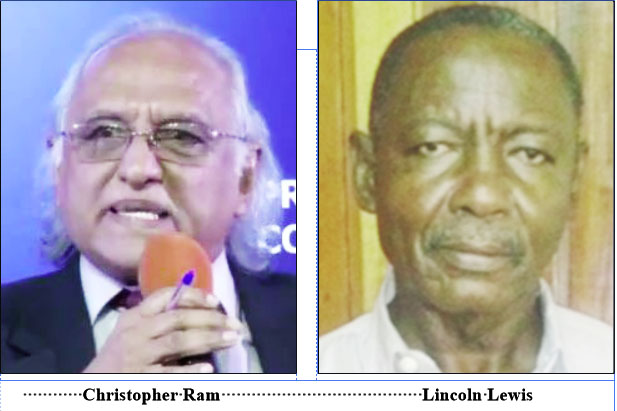Guyana’s extractive industry continues to be dominated by foreign ownership and without true political consensus the country remains vulnerable to exploitation from these foreigners.
This was the consensus of a three-person panel which last evening addressed the question: what can bauxite teach us about oil?
The panel which was convened by Moray House Trust, though sparsely attended sought to engage the public on the issue of the practical management of Guyana’s resources.
“So long as we are divided we will be exploited,” political commentator Christopher Ram told the handful of people gathered at Moray House.
Speaking on the topic of “Oil: the story so far” Ram lamented the divisive nature with which those in political power have approached the negotiation, signing and implementation of the production sharing agreement with ExxonMobil and its partners.
“I’d like to see more reaching across the aisle. I’ve seen the manifestos. I’ve listened to the political meetings. Not one of them have said the morning after I win or I lose, I will call the other side and say we have to work in the interest of Guyana and that is so sad,” he said.
Though he was keen to point out that there are benefits for Guyana within the controversial 2016 Production Sharing Agreement with ExxonMobil’s subsidiary, he lamented the secrecy under which it was negotiated and called for an international commission of inquiry into the entire process all the way back to 1999.
“There is much the [People’s Progressive Party/Civic] must answer for and much the current government must answer for. We as a people; as ordinary citizens cannot be left with this haranguing,” he stressed.
According to Ram an international CoI conducted by any or a combination of the international organizations such Chatham House, Global Witness or Rystad Energy has the potential to rouse ExxonMobil’s shareholders and possibly bring the company back to the table.
“In Guyana reputation might not be important but for these companies it is,” he said, noting that at least one partner has already clearly stated that their main interest is shareholder happiness.
Trade unionist Lincoln Lewis who presented on the lesson learned from bauxite raised similar points as he noted that Guyana must have a national position on issues of employment within and management of the extractive sector.
He lamented the weakness displayed by both major parties in dealing with the Russian Aluminium (RUSAL)-controlled Bauxite Company of Guyana Inc. (BCGI).
“If you failed to manage bauxite why should we believe you can manage oil? If we can’t deal with RUSAL how de hell will we deal with Exxon?” he questioned.
Economist Sydney Armstrong who represented the University of Guyana provided a comparison of the economic performance of the two resources. He indicated that like the bauxite industry the oil Industry in Guyana will have a glorious period but Guyanese must prepare for after.






